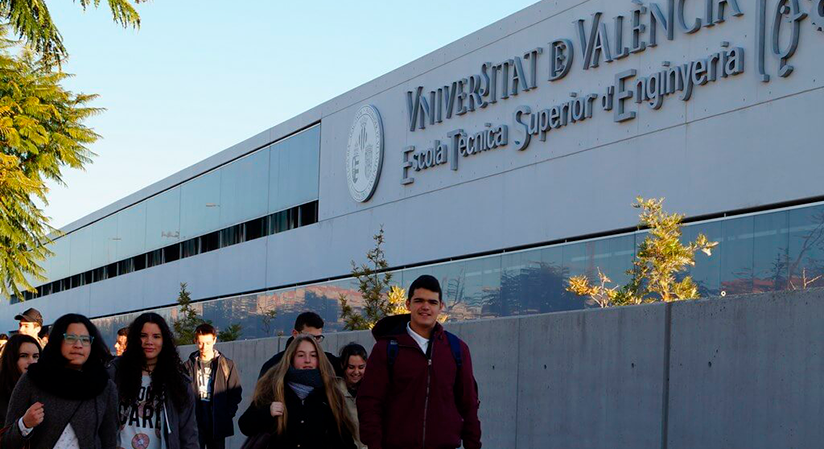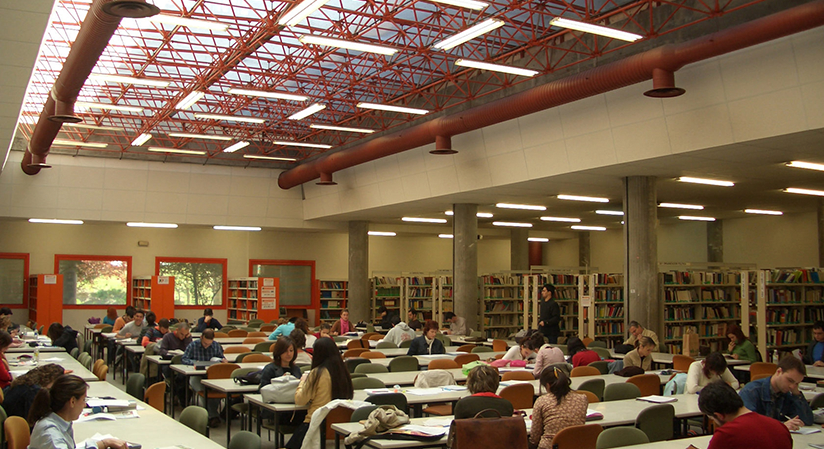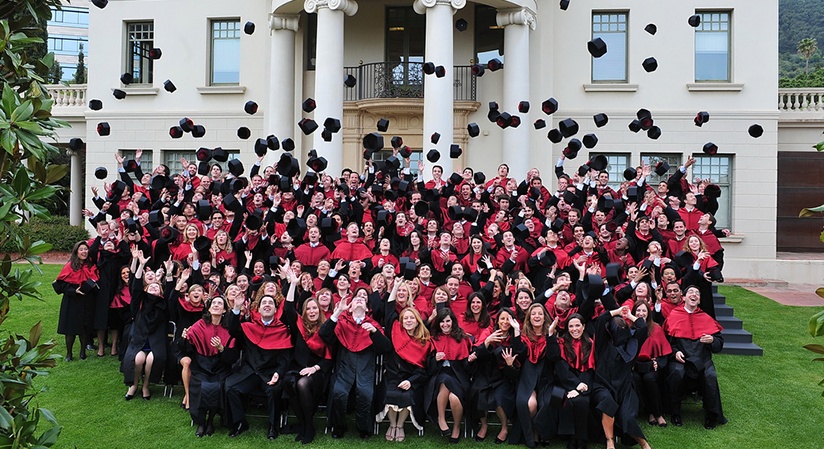Turnkey relocation to Spain from 6 weeks
We will help you to obtain a Spanish residence permit for the whole family with a minimum tax burden!
Read more
Get a free consultation
From 0 €
Tax burden per month
From 6 weeks
Term for obtaining a residence permit
5 years
Until permanent residence permit


How to Apply to a University in Spain After Graduating from High School
Spain, with its rich cultural heritage, warm climate, and high-quality education, undoubtedly attracts foreigners. Prospective students can choose an institution based on their professional interests and language proficiency.
One of the main advantages of universities in Spain for Russians is the opportunity to receive high-quality education. The country offers various scholarships for foreigners and numerous employment opportunities. Students can intern at local companies to gain practical experience and enhance their professional skills. This makes graduates competitive in the European job market.



 The first step in obtaining a student visa D will be submitting an application to the consulate. The processing time ranges from a few weeks to a few months. Issuance usually takes place at the consulate and requires personal attendance. After that, the student will need to travel to Spain, provide fingerprints to the local police, and receive a plastic ID card, which serves as the temporary residence permit for the country.
If the student already holds a Schengen visa for 30 days, they can apply for a residence permit (RVP) directly from Spain.
The first step in obtaining a student visa D will be submitting an application to the consulate. The processing time ranges from a few weeks to a few months. Issuance usually takes place at the consulate and requires personal attendance. After that, the student will need to travel to Spain, provide fingerprints to the local police, and receive a plastic ID card, which serves as the temporary residence permit for the country.
If the student already holds a Schengen visa for 30 days, they can apply for a residence permit (RVP) directly from Spain.

Go back to the blog
Criteria for Choosing a University
The list of top universities in Spain for foreigners includes:- UPV: This public institution is one of the best in the world. It consists of 3 campuses (Alcoi, Gandia, and Vera) and two educational centers. The teaching staff includes 2,200 highly qualified professionals.
- USAL: Founded by King Alfonso IX in 1218, it is the oldest Spanish-speaking university and one of the oldest in the world. It is a major research center in languages, law, and economics.
- University of Alicante: Known for its modern and architecturally attractive campus, it has over 70 departments and research groups. It offers education in fields like law, humanities, technology, pedagogy, and medicine.
- Universidad de Zaragoza: A leading center for technological science in its region, it includes 22 faculties and offers over 4,200 courses.
- Universidad Complutense de Madrid: Founded by Cardinal Francisco de Cisneros at the end of the 15th century in Alcalá de Henares, it is one of the most prestigious and oldest universities.
- Universidad de Granada: Trains specialists in various fields, from modern languages to computer science. It has been recognized as the second-best university in Spain and one of the most important among the oldest in Europe.
- Universidad Nacional de Córdoba: It has three main campuses and focuses on humanities, social sciences, medical, and natural sciences at both undergraduate and graduate levels.

Higher Education in Spain
When choosing Spanish universities for Russians, attention should be paid to prestige and rankings, accreditation, and the teaching staff. Another important criterion is the availability of specific programs. Spanish universities offer a wide range of disciplines (business, arts, medicine, technology, etc.). Before applying to Spain after finishing 11th grade, it is recommended to look into exchange programs that allow studying abroad. These are an excellent opportunity to get familiar with other cultures and deepen knowledge in the area of interest. Tuition fees also play a role, which depends on the program and specialization. Additionally, living expenses, textbooks, and other costs should be considered. For those looking to save, financial support (grants, scholarships, etc.) can be an option. Finally, it is essential to consider location and infrastructure. Spain offers a variety of urban and suburban universities, each with its own atmosphere and advantages. Proximity to cultural landmarks, transportation availability, and the overall atmosphere of the student campus should be taken into account. The presence of modern buildings, libraries, laboratories, and sports facilities can significantly impact comfort and academic success.How to Apply to a Spanish University
To begin, applicants must have completed secondary education, meaning a high school diploma or certificate. Another important factor is proficiency in Spanish. To prove language skills, DELE or SIELE certificates are required.
Education at a Spanish University for Foreigners
The main entrance exam is Selectividad, which tests general knowledge. It consists of several parts, including mandatory subjects. To prepare for it, you can attend courses that help understand the format of the tasks and provide materials. In addition, there are many textbooks and online resources. Aside from the standard Selectividad, there are alternative paths. For example, it is possible to apply to the second wave of admissions without Selectividad if there are available spots at the university. You will also need to provide:- A diploma with an apostille
- Passport
- Language certificates
- Additional documents (recommendations, certificates, etc.)
- Health insurance
- Visa application
- Personal file setup
- Administrative fees
- Accommodation, meals, and transportation
- Student ID card
- Educational materials

Financial Support for Studies in Spain
Such programs are aimed at supporting foreign students' education and research activities. To receive a state grant, applicants must prove academic success and meet other criteria outlined by the program. In addition to government programs, there are scholarships provided by private foundations and other organizations. These can be either publicly available or awarded through a competitive process. The main advantage is the variety and flexibility of the conditions. Some cover the entire tuition for Russians in Spain, while others only partially. To apply, carefully study the program conditions and prepare the necessary documents. Typically, the main requirements include:- Completed application form
- Recommendation letters
- Resume
- Copies of educational documents
How to Get a Visa
Students of full-time study programs have the opportunity to obtain a long-term student residence permit in Spain. The applicant will need to provide:- Proof of enrollment, accommodation, and payment of tuition fees;
- Passport;
- Medical insurance;
- A bank statement with a minimum balance of 7,200 euros;
- A certificate of no criminal record with an apostille;
- A health certificate (Form 082u).
 The first step in obtaining a student visa D will be submitting an application to the consulate. The processing time ranges from a few weeks to a few months. Issuance usually takes place at the consulate and requires personal attendance. After that, the student will need to travel to Spain, provide fingerprints to the local police, and receive a plastic ID card, which serves as the temporary residence permit for the country.
If the student already holds a Schengen visa for 30 days, they can apply for a residence permit (RVP) directly from Spain.
The first step in obtaining a student visa D will be submitting an application to the consulate. The processing time ranges from a few weeks to a few months. Issuance usually takes place at the consulate and requires personal attendance. After that, the student will need to travel to Spain, provide fingerprints to the local police, and receive a plastic ID card, which serves as the temporary residence permit for the country.
If the student already holds a Schengen visa for 30 days, they can apply for a residence permit (RVP) directly from Spain.
Life and Adaptation
To learn Spanish, there are special courses and programs, as well as online resources and apps available. Regarding accommodation during studies in Spain, the following options are available:- Dormitories: Rooms with basic amenities are located on university premises and are the most affordable option;
- Renting an apartment with classmates or friends: This requires a larger budget compared to the previous option;
- Living with a host family: Students live with locals and immerse themselves in the country’s culture.



 12/05/2025
12/05/2025  Reading time: 7 min
Reading time: 7 min 





